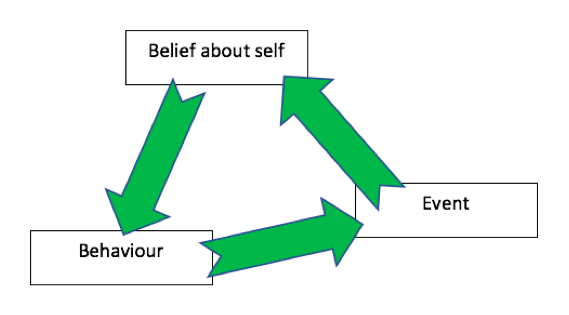Are They Actually Difficult at All?
Episode #1 of the course Handling difficult people by Chris Croft
Welcome to the course on Handling Difficult People!
My name is Chris, and our plan for the next nine days is to understand difficult people—why do they do what they do?—and then, based on that, to work out what to do about them.
When you think about someone whom you find difficult, it could be that they just seem different to you. For example, if they have an annoying habit of arriving late, are they deliberately trying to frustrate you, or are they just a more laid-back type of person? Yes, they could adapt and behave differently when they interact with you, but then you could adapt to them in the same way. Who’s to say who is right?
So, the first question to ask yourself when you encounter a difficult person is, “Is it me?” or, “Is it at least partly me? Could we meet in the middle?”
But Why Do People Behave as They Do?
That person who is shy or impatient or who has a short temper, were they born like that? Certainly, genetics do play a part, but many behaviors are learned, and then they become reinforced as we go through our lives, in a loop like this:

If you’re impatient—or at least, that’s the Belief you have about yourself—when you find yourself in a line, you’ll Behave in an impatient way. You’ll perhaps huff and puff and stamp your feet, and make irritated comments to the people around you in line. So, the Event is that you have those emotions and those conversations, and this is further proof that your Belief about yourself is correct—you are indeed impatient.
So, when you encounter someone you find “difficult,” it’s your scripts coming up against their scripts. Maybe they have one that says, “I’m always late, I’m just a disorganized person, it’s how I am,” and you have one that says, “I hate it when people are late, I’m a very punctual person, I can’t help finding it annoying.” Are they going to change their script, or are you going to change yours?
Why Should YOU Change?
The answer is, even though it’s possibly unfair and all their fault, it might be easier for you to change, at least to change how you behave when you’re with the difficult person. You’re more likely to get what you want from the situation.
And if you’re thinking, “I just can’t change—I’m just an impatient/sensitive/fussy person,” then that’s just a script. The only other option is to get them to change, or at least to change how they deal with you, which is more difficult but still achievable (we’ll come to that later). So, how about changing your script, your belief about yourself, to be, “I’m a punctual person, but I understand that other people often aren’t, and it doesn’t annoy me, it’s just one of those things.” I think you’ll agree that that would be a more helpful way to go through life.
Don’t Let Bad Scripts Control You
Any statement that begins with, “I always,” or, “I can’t help …” is a sign that you have a script controlling you. Often, we don’t realize that we are stuck in this groove, and we don’t realize that we could get out of it.
The best way to change your own scripts is by “self talk.” Imagine if you said to yourself: “I love meeting new people,” “I am patient in post office lines,” “I am not frightened of spiders,” or “I find exams easy.” We know these are not yet true, but keep saying it every day: “I am different now, I love spiders, I am patient in lines, I remain calm under pressure,” or whatever suits your situation. After a week or two, the subconscious starts to accept it, and the script is changed.
This is excellent news because it means you don’t have to live with things about yourself that you are not happy with—you CAN change.
Homework: Think about what your scripts might be—the good ones and the unhelpful ones you have. Then start a mantra to repeat every day, to neutralize one of your unhelpful scripts. See how quickly you can eliminate that script!
See you tomorrow when we’ll be looking at different types of people.
Chris
Recommended book
Share with friends

